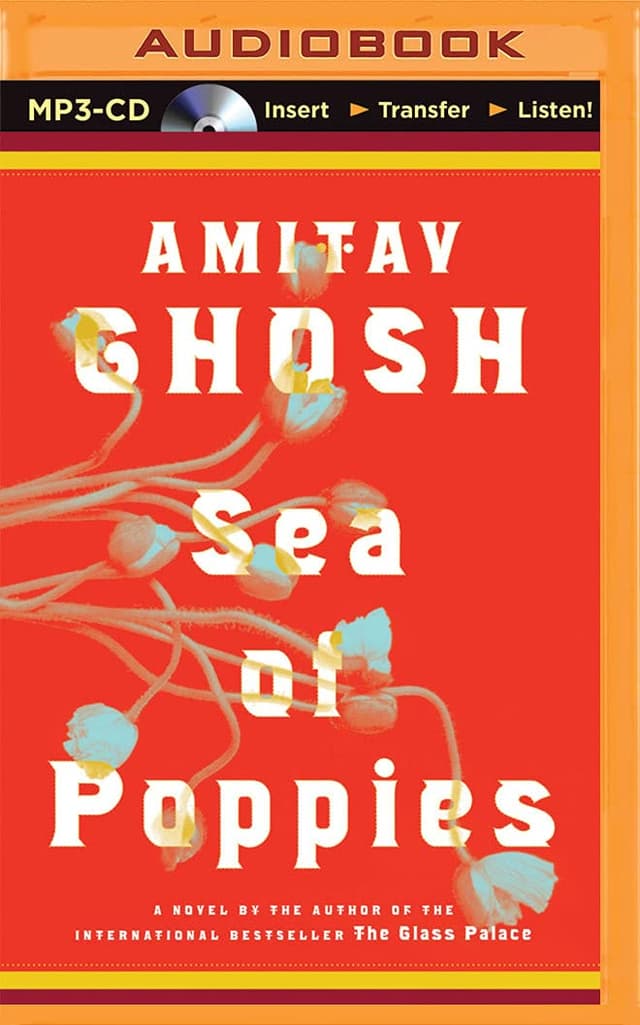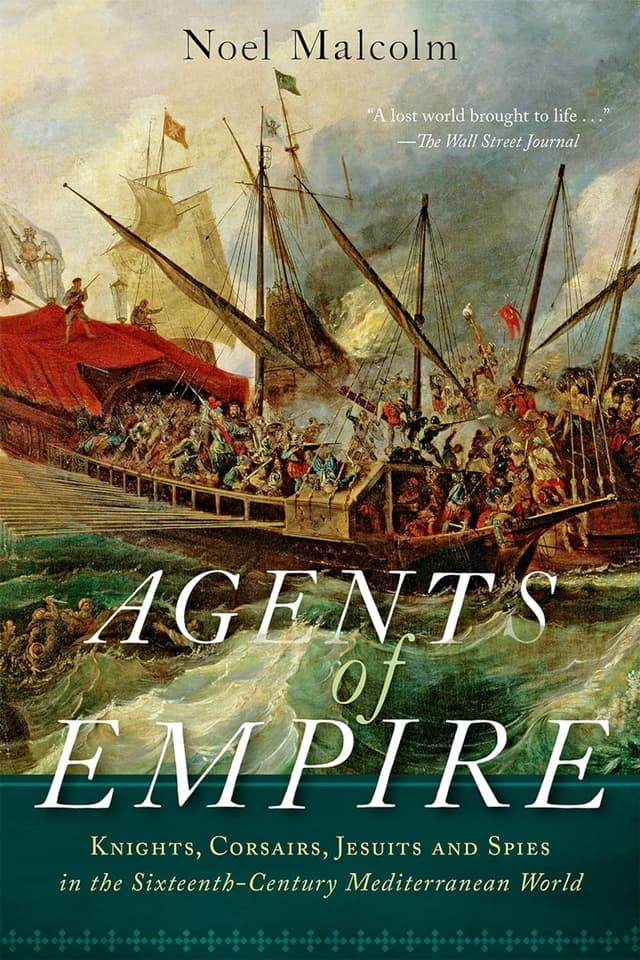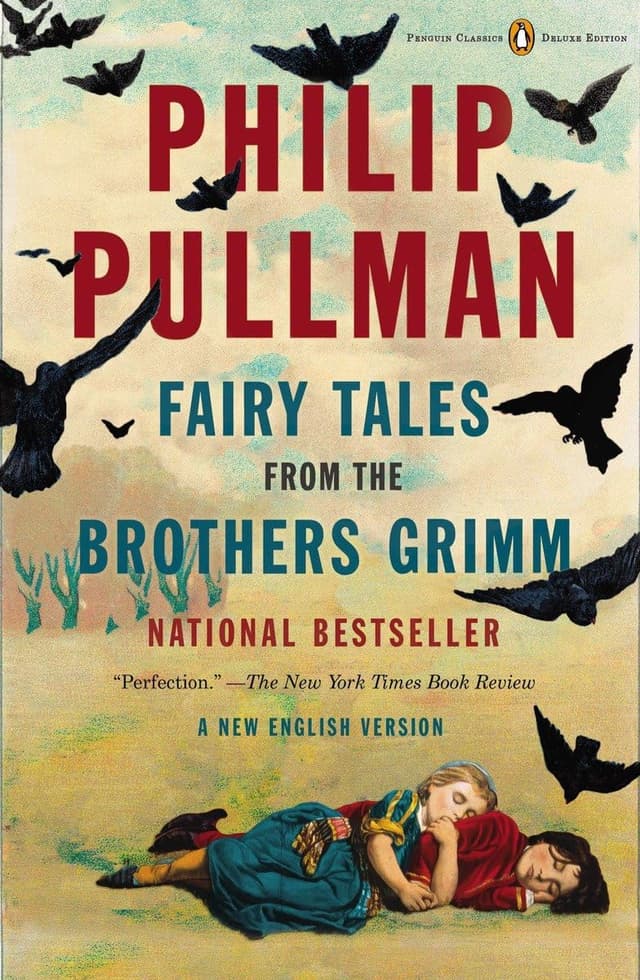Robin Sloan | May 11, 2020
Why is this interesting? - The Monday Media Diet with Robin Sloan
On newsletters, BoopSnoop, and the Brothers Grimm
Recommended Products

A novel that Robin Sloan recently reread, described as nearly perfect and richly captivating, with its events unfolding in the run-up to the First Opium War.

A work of serious academic history that provides a picture of the 16th-Century Mediterranean World, recommended for its revelatory and thrilling depiction of Europe and the Ottoman Empire at the time.

A recent translation of the classic fairy tales by the Brothers Grimm, which Robin Sloan has been reading and contemplates about its construction and the inimitable voice.
Robin Sloan (RS) is an author, olive oil maker, and internet tinkerer. I could point to any number of amazing pieces he’s written around the internet, but there are two that stick out most for their effect on me personally: Stock and flow from his Snarkmarket days laid out a simple framework for thinking about the different types of content on the web and Writing with the machine encouraged me to spend some time playing with neural networks. Thanks Robin! - Noah (NRB)

Tell us about yourself.
I'm Robin Sloan, a fiction writer who also spends a lot of time—maybe too much—fashioning odd-shaped internet projects. I wrote the novels Mr. Penumbra's 24-Hour Bookstore and, more recently, Sourdough.
Describe your media diet.
I suspect that a large portion of it is familiar to WITI readers—Twitter, the Washington Post, the Economist, etc.—so I'll focus on the parts that might be different.
I subscribe to a LOT of email newsletters. They all flow to a special email address, which lets me filter them into a folder in Gmail. Some insta-reads are: The Prepared, about manufacturing and supply chains in the 21st century; Anne Trubek's Notes from a Small Press, possibly the world's best chronicle of the ongoing operations of a small media business; Dan Cohen's Humane Ingenuity, on technology that "helps rather than hurts human understanding"; Craig Mod's roving Roden; Friend of WITI Edith Zimmerman's winning Drawing Links; and Evangeline Garreau's wonderful May I Recommend, which she sends **using an email platform she coded herself**. Next level.
But! And! I do read things not delivered via email, too. So, I'll add that, of all the newspapers I read or skim, it is the FT's coverage of the pandemic that I've found most illuminating and essential. This has been a legitimate surprise to me! And it's what finally tipped me over the edge, after all these years; I'm now a paying subscriber.
Finally: without planning to, I have ended up subscribing to… quite a lot… of video streaming services. Besides the predictable ones, there's Crunchyroll for animation and the Criterion Channel for schmancy stuff. But my favorite is Mubi. Their model is elegant: every day, a new movie is added to the rotation, reliably indie and/or arty and/or obscure. The new movie pushes all the others down the line, and after a month, it disappears off the bottom, no longer available. I suspect that ephemerality is what makes Mubi possible—they're paying less for these fleeting licenses—and I'm inspired by both the creativity of their business model AND the quality of their selections.
What’s the last great book you read?
I recently reread Sea of Poppies, a novel by Amitav Ghosh that is basically… perfect? What I mean is, it does what a novel is supposed to do. It's rich, rollicking, captivating, morally serious; a bit magical, a bit spooky; oh, and, this book palpably LOVES words—the tangle & surprise of languages intermingled. The book includes a glossary at the back. It's wonderful.
The events of the novel unfold in the run-up to the First Opium War, and I'm convinced that everything about our modern world—everything—is prefigured on these pages.
What are you reading now?
Agents of Empire by Noel Malcolm, which has a dizzying subtitle: Knights, Corsairs, Jesuits, and Spies in the Sixteenth-Century Mediterranean World. This is serious academic history, so it's slow going in parts, but as a picture of the time and place—a Europe of city-states and princedoms, the Ottoman Empire the most powerful force on the planet—I have found it totally revelatory and thrilling. I think it would appeal to many readers of WITI.
What’s your reading strategy when you pick up a print copy of your favorite publication?
I don't read too many periodicals in print; when I do, I am generally a front-to-back, straight-through reader, which I realize is a little noob-ish.
Who should everyone be reading that they’re not?
Omar Rizwan is a terrific, subtle, funny thinker on the history and culture of computing; he uses Twitter better—more humanely—than anyone I've ever encountered. If I had to whittle my following list down to four or five people, Omar would be one of them.
The artist Elisabeth Nicula's deep relationship with her backyard birds is one of the very best storylines on the entire internet, and her recent essay about one of those birds (whose name is Frank) is wonderful.
What is the best non-famous app you love on your phone?
Oh, easy: BoopSnoop, the app I made to communicate with my family :)
Plane or train?
TRAIN, FOREVER AND EVER
What is one place everyone should visit?
Well, thinking about trains makes me think about Fresno, which is usually where I'm headed when I'm on a train. I don't know if EVERYONE should visit California's San Joaquin Valley… but I think residents of California probably should. It's alternatingly bleak and beautiful, webbed with infrastructure, strangely familiar and deeply weird at the same time. An interesting, important region.
Tell us the story of a rabbit hole you fell deep into.
Lately I've been reading a lot of fairy tales, and thinking about their construction—that inimitable voice. In the introduction to his recent translation of Fairy Tales from the Brothers Grimm, the great Philip Pullman quotes the poet James Merrill:
I yearned for the kind of unseasoned telling found
In legends, fairy tales, a tone licked clean
Over the centuries by mild old tongues,
Grandam to cub, serene, anonymous.
I've found myself thinking about that line a lot, and wondering if that voice is even available to 21st-century writers. "Serene, anonymous." Wonderful.
Thanks for reading,
Noah (NRB) & Colin (CJN) & Robin (RS)
—
Why is this interesting? is a daily email from Noah Brier & Colin Nagy (and friends!) about interesting things. If you’ve enjoyed this edition, please consider forwarding it to a friend. If you’re reading it for the first time, consider subscribing (it’s free!).